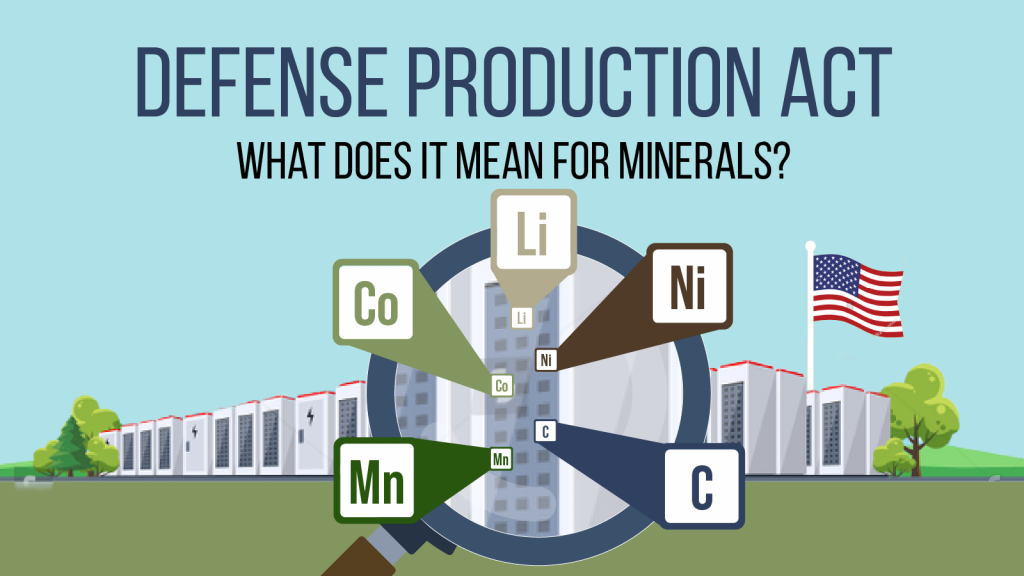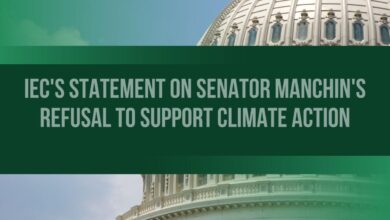
Bidens War Power: Solar and Heat Pumps
Why Joe Biden is invoking a war power to build heat pumps and solar panels is a question on many minds. This bold move, using the Defense Production Act, aims to ramp up the production of renewable energy technologies to combat climate change and strengthen national security.
It’s a move that has sparked debate, with some praising it as a necessary step to address the climate crisis and others criticizing it as an overreach of presidential power. This blog post will delve into the reasoning behind Biden’s decision, the potential impacts, and the ongoing discussion surrounding this controversial policy.
The Defense Production Act, originally designed for wartime manufacturing, is now being leveraged to bolster domestic production of solar panels and heat pumps. The administration argues that climate change poses a significant threat to national security, justifying the use of this wartime power for a non-military purpose.
This move has raised eyebrows, as it marks a departure from the traditional use of the Defense Production Act and sets a precedent for using wartime powers for domestic policy goals.
Justification for the Action

The Biden administration has invoked the Defense Production Act (DPA) to accelerate the production of heat pumps and solar panels, citing a national security imperative to transition to clean energy sources. This controversial move has sparked debate about the legal and practical implications of using war powers to address climate change.The administration’s rationale for invoking the DPA rests on the argument that dependence on fossil fuels poses a significant threat to national security.
This argument connects renewable energy to national security by highlighting the following:
National Security Implications of Climate Change
The administration argues that climate change is a national security threat, leading to increased instability, resource scarcity, and geopolitical tensions. This assertion is supported by various reports from intelligence agencies and the Pentagon, which highlight the potential for climate change to exacerbate existing conflicts, trigger mass migrations, and disrupt global supply chains.
“The effects of climate change are already being felt across the globe, and they are projected to become more severe in the coming decades. These effects will have a profound impact on national security, both domestically and abroad.”
National Security Strategy of the United States, 2021
Energy Independence and National Security
The administration emphasizes that dependence on fossil fuels makes the United States vulnerable to disruptions in global energy markets, potentially jeopardizing national security. They argue that transitioning to clean energy sources will reduce reliance on foreign oil and gas, enhance energy independence, and strengthen national security.
“The United States must reduce its dependence on foreign energy sources and increase its domestic production of clean energy.”
It’s fascinating how Joe Biden is using the Defense Production Act to boost the production of heat pumps and solar panels, citing national security concerns. While the move is intended to address climate change and energy independence, it begs the question: where are the pro-choice billionaires in all of this?
If they’re truly committed to fighting for reproductive rights, shouldn’t they be investing heavily in these clean energy initiatives, as will the pro abortion rights billionaires please stand up and use their influence to push for change? After all, a healthy planet is essential for a healthy future, and that includes access to safe and legal abortion care.
National Security Strategy of the United States, 2021
Potential Legal Challenges, Why joe biden is invoking a war power to build heat pumps and solar panels
The invocation of the DPA to address climate change has raised concerns about the legal justification for using war powers in this context. Critics argue that the administration’s interpretation of the DPA is overly broad and that the act should be reserved for genuine national emergencies.
It’s pretty wild that Biden is invoking the Defense Production Act to ramp up production of heat pumps and solar panels, right? It’s a big move to tackle climate change, but it’s not the only surprising news this week. Did you hear about the galapagos tortoise thought extinct for 100 years has been found alive ?
That’s a reminder that even in the face of seemingly insurmountable challenges, hope can still emerge. Just like the tortoise, maybe this push for clean energy is a sign that we can overcome our climate crisis.
They point to the fact that the DPA was originally intended to address wartime production needs and that its application to climate change could set a dangerous precedent for using war powers for domestic policy goals.
It’s a strange time, isn’t it? We’re debating the merits of using wartime powers to accelerate clean energy production, all while stories like the brutal attack on a Columbia graduate student in Manhattan, leaving his mother desperate for answers , remind us of the very real dangers we face in our own cities.
Maybe focusing on building a safer, more sustainable future for everyone is what we should be doing, instead of arguing over the means to get there.
“The Defense Production Act was designed to address wartime emergencies, not to address climate change.”
Statement from a Republican member of Congress
Legal Arguments in Favor of the Action
The administration maintains that the DPA grants them the authority to address national emergencies, including those related to climate change. They argue that the act’s broad language allows for the use of war powers to promote national security, which includes mitigating the risks posed by climate change.
They also point to the precedent of using the DPA to address non-military emergencies, such as the COVID-19 pandemic.
“The Defense Production Act grants the president broad authority to address national emergencies, including those related to climate change.”
Statement from the White House
Public Perception and Debate: Why Joe Biden Is Invoking A War Power To Build Heat Pumps And Solar Panels

The decision to invoke war powers for renewable energy has sparked a lively public debate, with opinions sharply divided along political lines. While some applaud the move as a necessary step towards energy independence and a greener future, others criticize it as an overreach of executive power and a potential precedent for future abuses.
Public Reaction and Media Coverage
The public reaction to Biden’s use of war powers has been mixed, with polls showing a significant divide between Democrats and Republicans. A recent poll by the Pew Research Center found that 72% of Democrats support the use of war powers for renewable energy, while only 28% of Republicans agree.
This partisan divide reflects the broader political polarization surrounding climate change and energy policy. Media coverage has been equally polarized, with conservative outlets generally criticizing the move as an overreach of executive power and a sign of Biden’s “radical” agenda.
Liberal outlets, on the other hand, have largely praised the decision as a necessary step to combat climate change and create jobs in the renewable energy sector.
Arguments for and Against the Action
Arguments in Favor
- Energy Independence:Supporters argue that the move will reduce America’s dependence on foreign oil and gas, making the country more secure and resilient. They point to the ongoing energy crisis in Europe, exacerbated by Russia’s invasion of Ukraine, as evidence of the need for energy independence.
- Climate Change:Proponents also argue that the use of war powers is necessary to accelerate the transition to renewable energy, which is crucial for addressing climate change. They emphasize the urgency of the climate crisis and the need for bold action.
- Economic Benefits:Supporters highlight the potential economic benefits of investing in renewable energy, including job creation and technological innovation. They argue that the move will create new industries and stimulate economic growth.
Arguments Against the Action
- Overreach of Executive Power:Critics argue that the use of war powers for renewable energy is an overreach of executive authority and a violation of the separation of powers. They contend that Congress should be the one to authorize such a policy, not the president.
- Potential for Abuse:Opponents also express concern about the potential for abuse of war powers, arguing that the precedent set by this action could be used to justify future executive overreach in other areas. They worry that the president could use war powers to bypass Congress and enact policies that are not supported by the public.
- Economic Concerns:Some critics argue that the move will lead to higher energy prices and economic hardship for consumers. They express concerns about the costs associated with building new renewable energy infrastructure and the potential impact on the economy.
Closing Summary
Biden’s invocation of the Defense Production Act to accelerate renewable energy production is a move that will undoubtedly continue to generate discussion. While some see it as a necessary step to address the climate crisis and ensure energy independence, others remain skeptical about the use of wartime powers for domestic policy goals.
The long-term impact of this policy remains to be seen, but it’s clear that it has sparked a conversation about the role of government in promoting clean energy and the ever-evolving definition of national security in the face of climate change.






